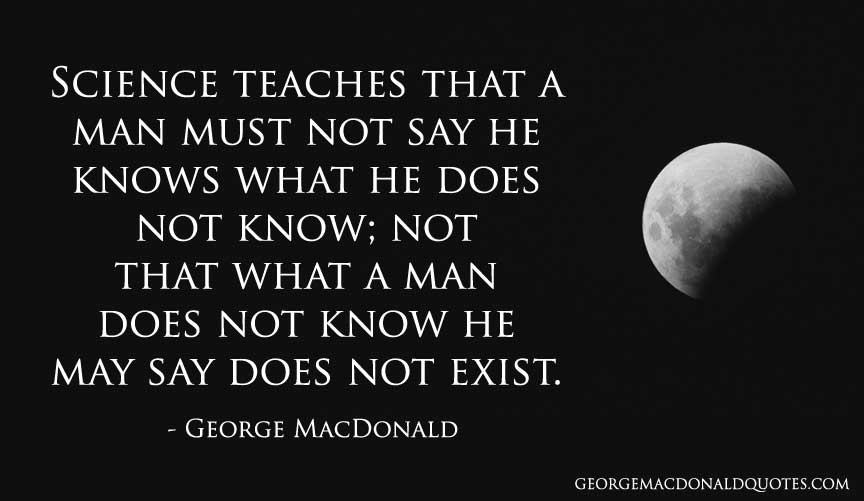[previous] [next]
 Download & Share
Download & Share
“Dorothy’s heart was relieved a little. She could read her father’s feelings better than most wives those of their husbands, and she knew he was happier. But she was not herself happier. She would gladly have parted with all the money for a word from any quarter that could have assured her there was a God in Heaven who loved. But the teaching of the curate had begun to tell upon her. She had begun to have a faint perception that if the story of Jesus Christ was true, there might be a Father to be loved, and being might be a bliss. The poorest glimmer of His loveliness gives a dawn to our belief in a God; and a small amount indeed of a genuine knowledge of Him will serve to neutralize the most confident declaration that science is against the idea of a God—an utterance absolutely false. Scientific men may be unbelievers, but it is not from the teaching of science. Science teaches that a man must not say he knows what he does not know; not that what a man does not know he may say does not exist. I will grant, however, and willingly, that true science is against Faber’s idea of other people’s idea of a God. I will grant also that the tendency of one who exclusively studies science is certainly to deny what no one has proved, and he is uninterested in proving; but that is the fault of the man and his lack of science, not of the science he has. If people understood better the arrogance of which they are themselves guilty, they would be less ready to imagine that a strong assertion necessarily implies knowledge. Nothing can be known except what is true. A negative may be fact, but can not be known except by the knowledge of its opposite. I believe also that nothing can be really believed, except it be true. But people think they believe many things which they do not and can not in the real sense.”
– George MacDonald. From Paul Faber, Surgeon
[previous] [next]